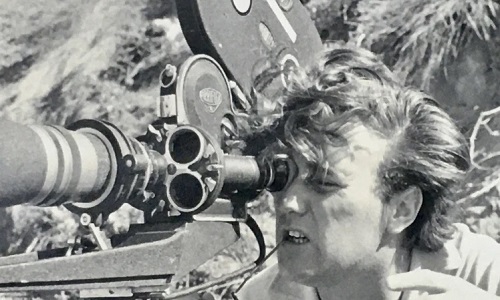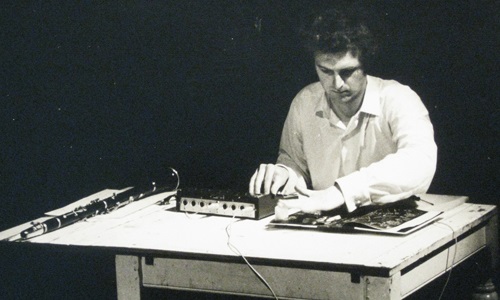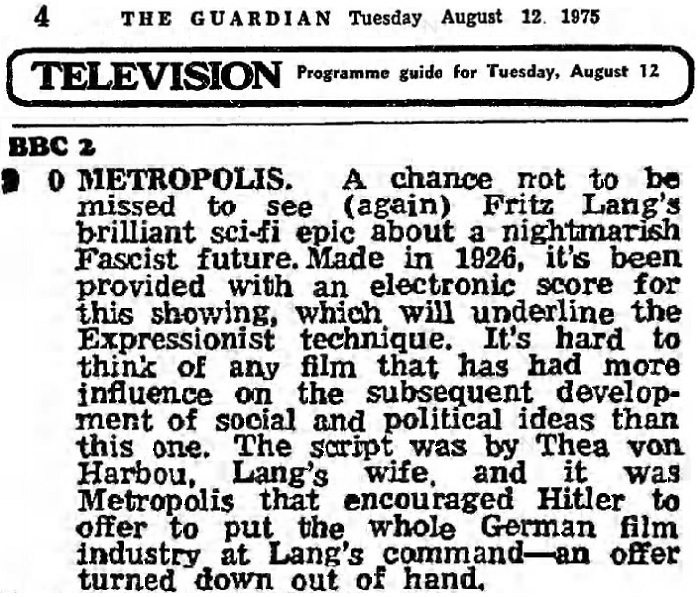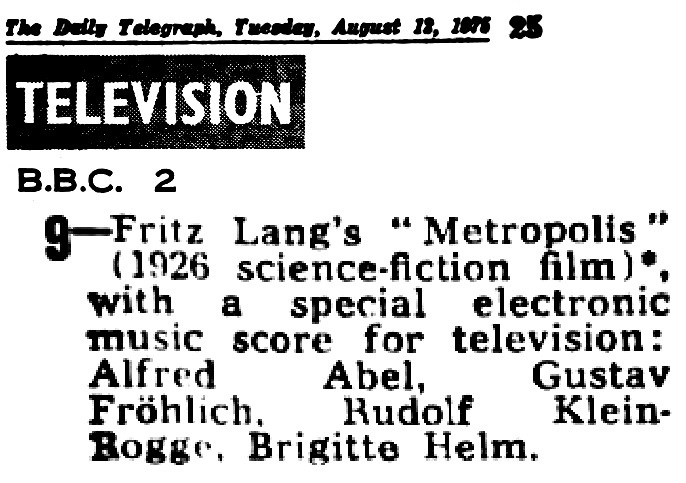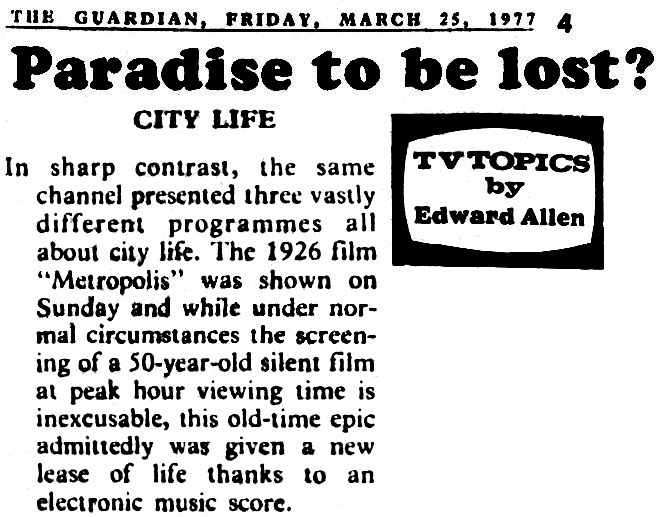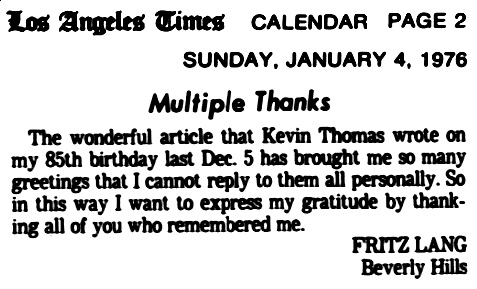| Return home | 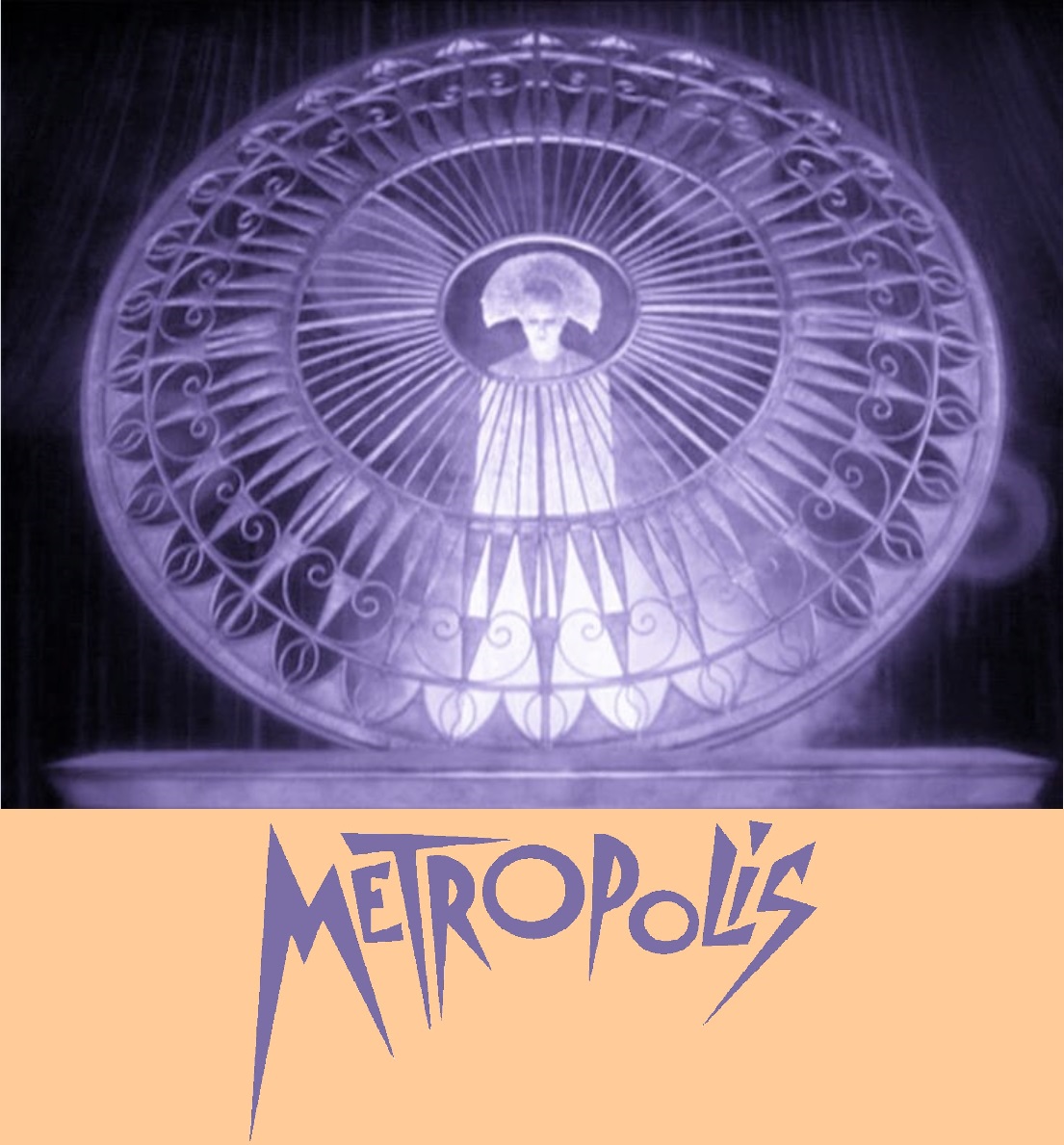 |
Return to previous page |
August 1975: BBC2 “Tuesday Cinema”
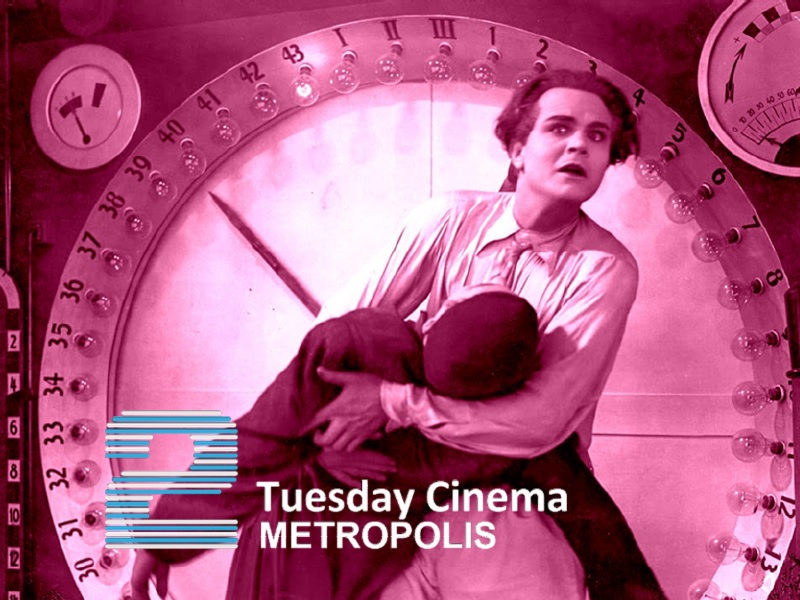
|
Don’t get too excited.
The above image is a forgery, a mockup of my own creation,
based upon a promo slide that BBC2 made for Back Street for its
27 April 1976 showing on “Tuesday Cinema.”
I chose the unit still that I thought BBC2 would likely have used.
I pulled the blue-and-white logo from a web site, even though BBC2 would have used an all-white logo,
and I typed in the wording that BBC2 would have used on the slide, but I don’t have the proper font,
and so I used Calibri and Arial instead.
|
The BBC2 began a new series called “Tuesday Cinema”
on Tuesday, 21 January 1975.
For this new series, BBC2 booked a somewhat used 35mm print of the Eckart Jahnke edition of Metropolis.
Maybe.
How? From whom? Not from the Staatliches Filmarchiv.
Who brokered this deal?
It was not PROGRESS that handled this movie.
The Staatliches Filmarchiv did not distribute to Western enterprises.
So, how on earth did the Eckart Jahnke edition end up at the BBC?
Well, the Staatliches Filmarchiv actually did once deal with a Western concern,
and my guess is that there was a loophole in the contract.
We’ll get to that.
This has been bothering me for more than four decades, but, once again,
it seems as though I had the information at hand all along and didn’t even recognize it.
Did BBC2 receive a 35mm film print or did it receive a quad?
I’m trying to think this through.
BBC2 must have received a 35mm print and had its own technicians transfer it to three reels of quad.
Had the distributor made the quad, it would have run a pristine print or neg or fine-grain through the telecine;
the distributor would not have pulled any old battered print from the warehouse to make a quad transfer.
The print shown on BBC2 was filled with dirt and damage.
So, BBC2 received a full-aperture 35mm print, not a quad.
I’m trying to think this through even more.
This may well have been the Western world’s première of that preliminary reconstruction.
Maybe. Probably. I don’t know.
How BBC2 found out about the Eckart Jahnke edition, I do not know.
Why the BBC2 chose to go to the trouble of licensing the Eckart Jahnke edition
rather than using the 1948 edition at the BFI in London, I do not know (maybe there was a rights tie-up ?).
BBC2 further commissioned two musicians to compose a new soundtrack for the movie.
Why BBC2 did not choose long-time true-blue silent-film accompanists
but rather chose those two particular experimental musicians to compose a modern electronic soundtrack, I do not know.
The two musicians did not compose music.
Instead, they composed sound effects, mostly electronic sound effects: beeping, buzzing, whistling, thudding, booming, and so forth.
I never knew who was responsible for that until just now.
Mark Roland revealed their identities in
“Kraftwerk: The Man-Machine at 40,”
Electronic Sound, 13 April 2018:
|
In 1975, the BBC screened the film as part of their
Tuesday Cinema season
and commissioned an electronic score from William Fitzwater and Hugh Davies
a student of Stockhausen in the 1960s, for the occasion.
|
This calls for some investigation.
William
Fitzwater
(1935–2021) and
Hugh
Davies
(1943–2005).
Another interesting quote is from
Goldsmiths University of London:
Fitzwater and Davies had apparently begun working on this project in
1974.
When we go to Discogs,
we find a statement that is unsupported:
|
The 1975 BBC version of Metropolis features an electronic score, composed by William Fitzwater and Hugh Davies.
It is usually described by many as the worst score ever made for the movie.
|
I don’t understand “usually described by many.”
Why is the word “usually” in there?
Does that mean that many people say it’s the worst,
except on every alternate Thursday, when they change their minds?
Further, who are the “many”?
I have heard only two or three complaints about this soundtrack, which I find surprising.
The soundtrack is a violation of silent-film tradition, and it is not even music.
I would normally expect multitudes of silent buffs to stage public protests and to burn the BBC studios to the ground,
but, instead, there was not a word of criticism.
That, I suppose, is simply because almost nobody watched the broadcast.
(Actually, I now suspect that it was Fritz himself who requested such a soundtrack.)
|
A late ’70’s BBC reconstruction added a few shots,
including some
|
It is clear that Glenn Erickson has a video copy, or had a video copy, or at least once saw a video copy of this edition.
I bet he got a copy from Ted Obrien.
By the way, Glenn has now changed his opinion about the speed issue (as have I):
“Metropolis and the Frame Rate Issue,”
DVD Savant, 1 May 2010.
A booklet
published by the Friedrich-Wilhelm-Murnau-Stiftung lists this Eckart Jahnke edition as 2,816m.
That is a typographical error.
It should be 2,876m, which is about 9,436', which is 105 minutes at 24fps or 101 minutes at the British television speed of 25fps.
So, why was the movie 126 minutes long?
Easy. The telecine engineers adjusted the speed.
They ran the film at 20fps.
The adjustment was not made with a prism, nor was it made by doubling every fourth frame, which was a common method in 50Hz countries.
Instead, the frames were blended electronically.
How precisely that was done, I have not any idea.
If somebody can explain this, please do. Thanks!
That leads to my next question:
Who made the decision to transfer the film at 20fps? And why?
Was it the Staatliches Filmarchiv that recommended that speed?
Was it the technicians at the BBC who recommended that speed?
We can backwards calculate (or cackle-ate , as Albuquerqueans used to say):
126 minutes at 20fps is about 9,450'.
That’s only 14' off from the 9,436' above, not even a ten-second difference.
As far as I am concerned, that’s a match.
Zo, BBC2 broadcast, almost certainly for the very first time in the Western world,
a significantly longer edition of Metropolis.
One would think that the publicists would make the most of that,
and would announce far and wide that this edition was far better from what could be seen
at the cinema, or at the film clubs, or even at the archives. Yes?
Hold on a minute.
Publicists make false claims, not true ones.
When they are handed a true claim on a silver platter, they get confused and don’t know what to do.
So, instead of trying to figure out what to do, they just decide to pretend that there’s nothing there,
in the hopes that maybe it would all just go away.
Here are the announcements:
It was repeated once and only once, on “Sunday Cinema” nearly two years later:
If you recorded either of these broadcasts,
and if your tape is complete and if it is still playable and has good image and sound,
please contact me.
I shall offer you £200 for it.
If you prefer to keep the tape but would be willing to run off a .MOV or .MP4 file for me,
£150.
Not a single peep about this being a superior edition.
I pulled a quote about Kraftwerk above, not realizing its significance.
It appears that Kraftwerk krafted a track as an homage in 1978,
just about three years after Fitzwater and Davies had completed their soundtrack.
A New Zealander audio/video editor by the name of John McWilliam abridged and re-edited and speed-altered
the 2010 restoration and then blended “Metropolis” and a number of other Kraftwerk tunes to sync to the images:
https://vimeo.com/107882273.
I remember when I first heard some Kraftwerk on the radio back in about 1978.
I found it beautifully hypnotic.
Soon enough, I discovered that it is hypnotic for only a few minutes, after which I find it tiresome.
Then, after another two or three minutes, it is not merely tiresome, it is agonizing, emotionally draining, and absolutely joyless.
So, I don’t care for this.
Or rather, I didn’t.
It’s sort of growing on me. Sorta.
Parts of it work beautifully, I admit.
The subtitles are fascinating, though there is a mistake: Josaphat would definitely not have called Freder “Sir.”
Now that I’ve gotten somewhat used to it, I see that the music makes the movie even funnier.
Alas, the video was taken down.
I’m pretty sure I made a backup copy, but if I did,
it’s on an external hard drive that went belly-up .
